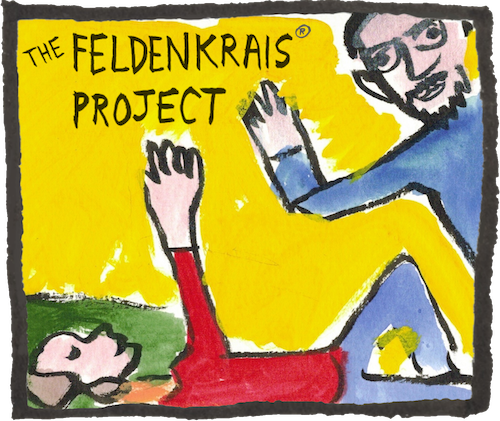Learning How to Learn
Tuesdays in September, 9:30-10:30 AM Central time, with live discussion after class, and lesson notes and recordings delivered by email
Feldenkrais Trainer Deborah Bowes leads our class Sept 7. Nick teaches Sept 14, 21, & 28
One has to set about learning to learn as is befitting for the most important business in human life; that is, with serenity but without solemnity, with patient objectivity and without compulsive seriousness.
– Moshe Feldenkrais, The Potent Self
I like to greet the beginning of the school year by recommitting to learning, and this season I’ve been remembering that exactly 20 years ago I committed to learning the Feldenkrais Method: I joined a professional training program in August, 2001.
Friends and family asked me what in the world I was studying. “Movement,” I would say. Or, a few months later, feeling more clever, I would say “the skeleton!” But I remember when I finally got it about Feldenkrais. I finally realized the accurate way to start the conversation – and to frame my own studies of movement and bones, brains and bodies, even how to begin to relieve my own suffering – was to commit to a simple phrase: Feldenkrais is about learning HOW to learn.
How we harness neuroplasticity, the brain’s curiosity-based ability to change and improve itself and our body’s behavior, seems like an indirect path at first: in Feldenkrais study, as in all learning, the “How” – the quality of our action and attention – has more of an impact on our ability to change and improve ourselves than the “What” – the precise “topic” we think we’re learning.
This still enthralls me today, but in 2001 it was a critical discovery. Back then I couldn’t have been farther from serenity or patient objectivity, the learning “How” Moshe wrote about. I had injured myself by putting tremendous efforts towards “What” I wanted to learn. To become a concert pianist I believed I had to dedicate dozens of hours a week to repetitive piano practice, often ignoring how I was doing it.
It’s been my experience as a Feldenkrais Practitioner that everyone limits themselves in similar ways in some parts of their lives. When we want change we can get pretty compulsive and serious about the What, and miss out on the life-changing, immediate value of How.
So in honor of the beginning of the school year, each of our September lessons will offer a rich exploration and reflection on Learning How to Learn, giving students ample opportunities to experience:
- How changes in movement quality can immediately expand self-awareness
- How skillful use of attention can rapidly improve comfort and build better habits
- How cultivating a light attitude toward challenges improves our ability to adapt
And how, as Moshe continues, “clenching the fists, tensing the eyebrows, tightening the jaw are expressions of impotent effort.” Relatable for you? I sure remember a lot of “impotent effort” feelings in my piano practicing 20 years ago – I just didn’t know at the time that it was damaging me! Now I know just where to go when I feel those sensations: to the mat, for a Feldenkrais lesson.
Moshe’s famous quote concludes sublimely:
Learning must be undertaken…in a state where smiling can turn into laughter without interference, naturally, spontaneously.
Please join us for joyful Awareness Through Movement explorations! As always each week’s Feldenkrais ATM lesson is designed as a standalone experience, but threads of learning will flow throughout the four lessons. Explore these lessons in sequence to enrich your self-discovery process.
See you on the mat,
Nick Strauss-Klein
PS – Join us on Zoom if you can: live participants have the added benefit of unrecorded Q&A and discussion after class.

